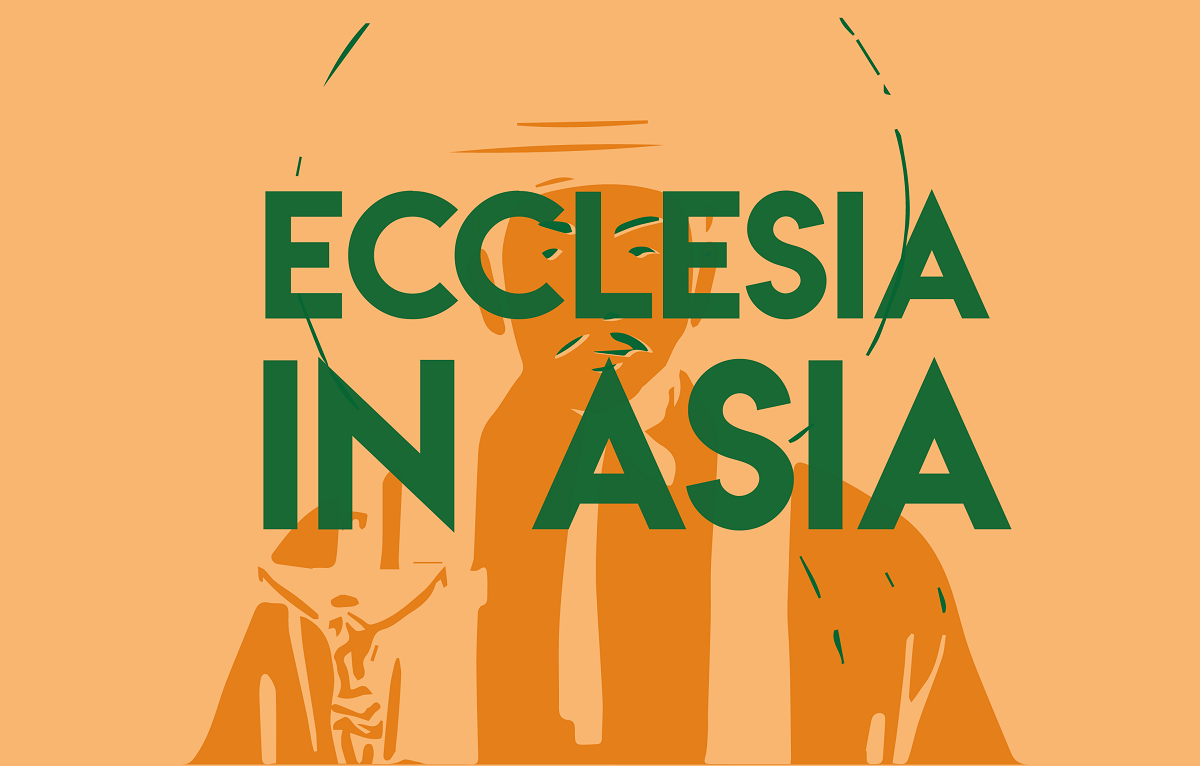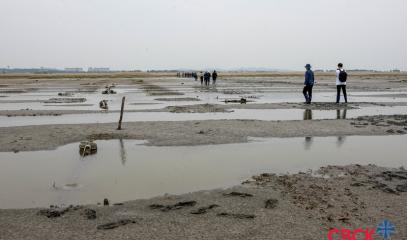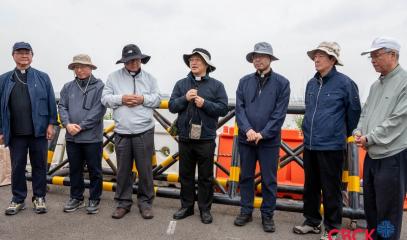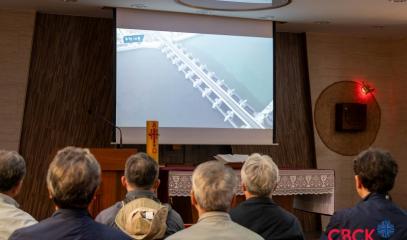Korean bishops visit the Saemangeum mudflats and a youth centre in Incheon
For ten years, the Catholic Bishops' Conference of Korea has held two visits annually to listen to people in places that are important for the life of the Church and society. On the mudflats near the longest dyke in world, built 20 years ago, the bishops saw first-hand the dyke’s environmental impact on local communities, which was front-page news following last year’s Scouts Jamboree debacle.
Seoul (AsiaNews) – Bishops visiting places significant for the Church and beyond falls within the perspective of the “outbound Church" Pope Francis never tires to talk about.
An interesting example of this are the "field experiences” undertaken by the Catholic Bishops' Conference of Korea (CBCK), who this year marked their tenth anniversary, the result of a decision by the local Assembly of Bishops.
Since 2014 in fact, Korean bishops every year make a day visit to at least two significant places to listen to local communities.
This year, the first field experience took place on 30 April at the mudflats near Haechang and Sura at the Saemangeum Seawall, the 33-kilometre dyke, the longest in the world, on the southwestern coast of the Korean peninsula, which joins two headlands separating the Western Sea (which the Chinese call the Yellow Sea) from the former Saemangeum estuary.
The visit was organised by the CBCK’s Committee for Ecology and the Environment, and saw the participation of Archbishop Cho Hwan-Kil of Daegu, Bishop Kwon Hyeok-ju of Andong, Bishop Cho Kyu-man of Wonju, Bishop Kim Son-tae of Jeonju, Bishop Kim Ju-young of Chuncheon, and Auxiliary Bishop Lee Sung-hyo of Suwon.
The prelates gathered in the morning to see the Haechang mudflats, then, at the Catholic church in Dengyong, listened to the explanation of the damage caused by the Saemangeum Seawall, while in the afternoon they went to the Sura mudflats.
As a result of the construction of the large dyke, completed on 21 April 2006, the ecosystems of Saemangeum Lake suffered greatly. The seawall gates have to be open regularly, and since 2020, seawater is let in twice a day, keeping it 1.5 metres below sea level.
This method has not solved the problem of black water in the lake, which, by flowing into the sea, carries the pollution beyond the dyke.
Last summer, the Haechang mudflat was the site of the worldwide scout Jamboree, which unwittingly became a symbol of the area’s poor environmental conditions, which turned out to be unsuitable even for tents.
At the site, the bishops met Fr Moon Kyu-hyun, a priest from the Diocese of Jeonju, who in the spring of 2023 travelled for 65 days to Seoul on a small boat together with Monk Su-kyung and Pastors Kim Kyung-e Lee Hee-woon to raise awareness about the Saemangeum mudflats.
Located near the village of Namsura, the Sura tidal flat means "embroidered silk" to reflect the rich biodiversity generated by the tides. Some species of birds at risk of extinction still survive at the site. However, the prospect of the construction of a new Saemangeum airport that the government wants to open by 2029 hangs over its future.
Local communities are up in arms against such a project, especially since an airport already exists in nearby Gunsan and the area is at risk of flooding due to rising sea levels and collisions of planes with flocks of birds.
“Seawater must be able to come and go, and the current situation seems to be serious,” said Archbishop Cho Hwan-gil, speaking about what he saw during the visit. “I saw a banner that said, 'Water is life,' and I realised that we have to work to make this happen.”
“I had heard a lot about this problem, but it was only when I came here that I realised how serious the situation is," added Bishop Kim Sun-tae. “The project started with little transparency. As believers, we must pray and understand how to overcome this situation and resolve it.”
The Korean bishops’ second field experience took place last Thursday at the Incheon City Hall Youth Self-Reliance Support Centre with the participation of CBCK president, Bishop Lee Yong-hoon, Bishop Kim Jong-gang, chairman of the Youth Ministry Committee, Bishop Jung Shin-chul of Incheon, Bishop Kim Ju-young Chuncheon, Bishop Moon Chang-woo of Jeju, and Bishop Seo Sang-beom (military ordinary).
Run by the Catholic Children and Youth Foundation on behalf of the Incheon Metropolitan City, the Youth Self-Reliance Support Centre provides a harmonious living environment and practical self-reliance training programs for local youth, especially those who spent time in penal institutions.
The aim is to reintegrate them into society by supporting their journey towards psychological, social, and economic self-reliance.
ECCLESIA IN ASIA IS THE ASIANEWS NEWSLETTER DEDICATED TO CHRISTIAN COMMUNITIES IN ASIA. TO RECEIVE A WEEKLY UPDATE EVERY SUNDAY, CLICK HERE.










.png)










